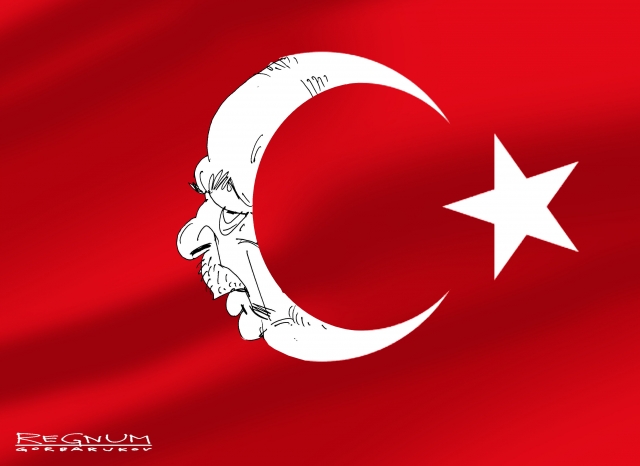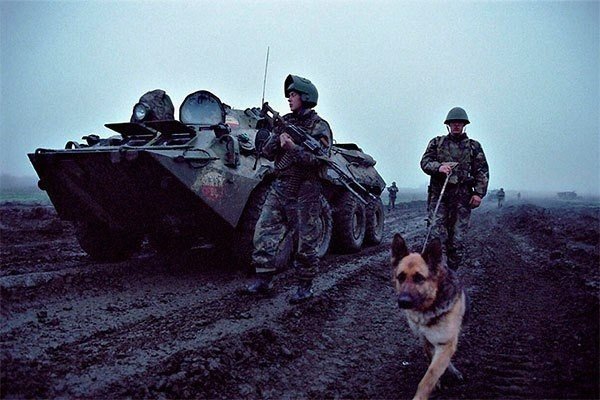
Turkey's active participation in the victorious Karabakh war for Azerbaijan sharply increased the interest of experts and publicists in Ankara's foreign policy doctrines, which they denote by two terms: Neo-Ottomanism and Neo-Pan-Turkism. They are often put in one information row separated by commas for obvious reasons.. Supporters of each of the two ideologies strive for the same thing - the creation of a "Great Turkey", and some claim, that Turkish President Recep Tayyip Erdogan is in practice implementing a policy of synthesis of these two directions. His wars in Iraq, in Syria and Libya, attempts to ignite a military conflict with Greece are presented as a manifestation of neo-Ottomanism, that is, the restoration of Ankara's influence within the borders of the former Ottoman Empire.
Cypriot military operation 1974 of the year, as well as participation in the recent Karabakh war, qualifies as the result of the successful use of the doctrine of Neo-Pan-Turkism. Ankara's eyes are also directed towards Iran, inhabited by about 20 million ethnic Azerbaijanis. At the same time, the term “one nation - two states” introduced by Heydar Aliyev is actively used in the Azerbaijani direction as an opportunity for the potential implementation of a geopolitical project to create a common Turkic state such as a federation or confederation.. is approved, that in the future Kazakhstan may join such an alliance, Kyrgyzstan, Turkmenistan, Uzbekistan and even Afghanistan. "Turkey Spreads Its Wings", Russian Foreign Minister Sergei Lavrov said recently, which the, true, does not believe in the possibility of the emergence of the so-called "Great Turan", thinking, that now the Turkic countries in the post-Soviet space are primarily concerned with strengthening their national statehood. However, Turkey's hybrid foreign policy needs to be analyzed more carefully.. We won't go into details, and just outline the main trends that have developed today, including in the conceptual apparatus widely used by experts.
First, about the term neo-Ottomanism. He appeared in the Greek media in 1974 year after the Turkish invasion of Northern Cyprus and was forgotten for a long time. They returned to him during the phenomenon of the so-called Arab Spring, when Ankara was convinced, that she is allegedly being given a historic chance to realize her neo-Ottoman ambitions and form a new order in the Middle East. The attempt was unsuccessful, and Turkey "suddenly stuck in the Syrian crisis", causing considerable criticism from the Arab world. Besides, Ankara failed, more precisely, she was not ready to create an ideological basis for the formation of a new Ottoman thinking and the development of a supra-Turkish identity, make their imperial traditions and ambitions attractive to the peoples of the region. Erdogan's tilt towards Islamism led to, that he sacrificed his relations with the West, abandoned the Kemalist model, combining elements of a democratic and secular state and moderate Islam, but never made a new one.
In this situation, Ankara found itself forced to promote its national interests in the Middle East and North Africa., relying mainly on the military factor. It is no coincidence that many Turkish and American experts are now declaring, that the doctrine of neo-Ottomanism was not developed in Turkey, and in the think tanks of the United States and from there it was introduced into Turkish foreign policy. Former Turkish Foreign Minister and ex-Prime Minister Ahmet Davutoglu does not hide, that the doctrinal basis and the term Neo-Ottomanism as a whole originated in the USA, and his vision of the future of Turkey is partly based on some of the theses of the American geopolitician George Friedman.
Now about neo-panturkism. Archival materials, disclosed in recent years in many countries of the world, including in Russia, but not in Turkey, allowed the researchers to, that pan-Turkism - as a concept - was not developed in the bowels of the Ottoman Empire and was aimed at its collapse. This concept originated over a century ago., one of the first supporters of this idea was the Hungarian orientalist Arminius Vamberi, who also adhered to the hypothesis of the Turkic origin of the Hungarian language. In the most general sense, pan-Turkism is an ideological, political and to some extent cultural movement, aimed at achieving a greater degree of unity among all Turkic peoples, up to the creation of a confederation of Turkic states or even a Turkic federation based on a national, not the religious identity of the Turks. The Russian Empire also had a hand in this process.. Let's remember the Crimean Tatar Ismail Gasprinsky, activities of Kazan Tatar Yusuf Akchuru, Azerbaijani Ali Hussein-zade. Eventually, when the ideology of Pan-Turkism was adopted by the Young Turk Party "Unity and Progress", came to power in Turkey in 1908 year, It becomes clear, that the multi-ethnic and multi-confessional Ottoman Empire is in for a huge upheaval, what happened then, when the course was taken to create a unitary mono-ethnic Turkic state.
After the ideological basis of the domestic policy of the initial stage of the development of the Republic of Turkey, Turkism became, when the process of assimilation of non-Turkic peoples was going on. If we go back to today, then the renaissance of the ideas of pan-Turkism in Turkey brought forward the Kurdish question, and neo-Ottomanism gave it a new geopolitical sound in the Middle East. Another battle for the Ottoman heritage began in the situation, when Turkey's European ambitions failed. In such a difficult geopolitical situation, Ankara should have a well-thought-out foreign policy doctrine, which would help preserve the territorial integrity of the country, which implies balanced decision-making both in the internal, as well as in foreign policy. Turkey must under no circumstances not act from imperialist positions. Because the ideas of neo-Pan-Turkism can be used by external players, for which they have significant potential, and not only ideological. Pan-Turkism can be used as a convenient platform for the implementation of plans in the Middle East.
Hence the main conclusions. First: the theory of the revival of the Ottoman Empire is untenable, since it seriously offends the interests of neighboring countries, one side, a, with another, Turkey itself does not have enough resources for wide expansion. Second: the ideologies of neo-Ottomanism and neo-panturkism imported to Turkey, when used in a large regional game, Turkey is shaken. And it might happen, that Ankara will no longer act as the leader of the pan-Turkic space. maybe, that is why the words of the ideologist of secular Turkey are relevant today (nation-state within "Anatolian" borders) Kemal Ataturk: "We must retreat now, to save Turkey for the future revival and offensive". Iran's exit from international isolation is planned in the near future, whose geopolitical interests intersect with Turkish, which will significantly complicate Erdogan's neo-Ottoman and neo-Pan-Turkist plans and weaken Turkey's geopolitical significance in the Middle East. The new big game in the region has just begun.
Stanislav Tarasov











